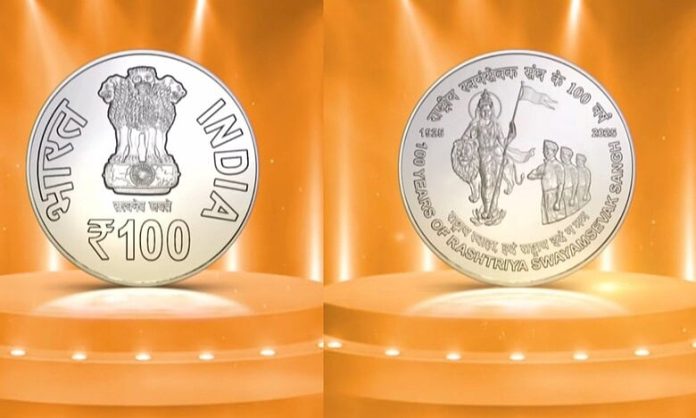New Delhi: The Centre’s decision to release a special postage stamp and a ₹100 coin to mark the 100th anniversary of the Rashtriya Swayamsevak Sangh (RSS) has drawn sharp criticism from political and civil society groups. The move is being described as an affront to India’s constitutional principles.
In a strongly worded statement, the Communist Party of India (Marxist) said the decision was “a grave insult to the Constitution” because the RSS has historically opposed it. The party objected to the inclusion of the “Bharat Mata” image on the commemorative coin, calling it a sectarian Hindu symbol that aligns with the RSS vision of a Hindutva state.
The CPIM also condemned the postage stamp that portrays RSS volunteers at the 1963 Republic Day parade, alleging that it misrepresents historical facts. According to historians, the event was a mass gathering of over one lakh citizens, and any presence of RSS volunteers was incidental and unacknowledged at the time. The party accused the government of using state symbols to rewrite history and rehabilitate the RSS’s image.
Critics argue that the RSS not only distanced itself from the freedom struggle but also bolstered British policies of divide and rule, weakening the unity of India’s independence movement. Post-independence, several official inquiries have linked the RSS and its affiliates to episodes of communal violence. Today, opponents say, the organization continues to promote exclusionary ideologies that target minorities and marginalized groups.
The controversy highlights concerns over the use of state power to legitimize a sectarian agenda while obscuring the RSS’s contested historical role.




